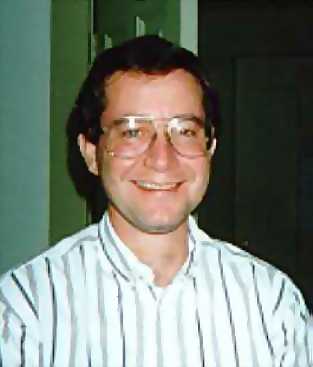|
|
Alan Wormser,
N5LF |
|
|
Alan Wormser,
N5LF |
Keep the Amateur Service Fundamentally Technical!
SUPPORT the Fists CW Club Petition for Rulemaking
Read the Petition (RM-10811)
then
Send your
Comment to
the FCC – It's Easy!
(Be sure to refer to Proceeding
RM-10811)
Quick Site Index: How to Become a Ham, Elmer Hall of Fame, QSL Cards, CW Traffic Nets, Lots of Links
Ham Radio - Something for Everyone - Try it All!
 Amateur
Radio is so broad and so varied that you just can't get bored.
I happen to be a CW freak (CW="continuous wave"=Morse
Code). BUT - I also enjoy digital modes & SSB, computers,
kit building, DXing, QRP (low power), traffic handling, emergency
operations, helping newcomers, and being a volunteer examiner.
Through the technical side of ham radio you can learn about things
like electronics, magnetism, propagation, and antennas. You can
experiment to your heart's content. But even more important is
the human side: talking to people in far off lands, helping
newcomers, and taking part in your community's disaster preparedness.
Amateur
Radio is so broad and so varied that you just can't get bored.
I happen to be a CW freak (CW="continuous wave"=Morse
Code). BUT - I also enjoy digital modes & SSB, computers,
kit building, DXing, QRP (low power), traffic handling, emergency
operations, helping newcomers, and being a volunteer examiner.
Through the technical side of ham radio you can learn about things
like electronics, magnetism, propagation, and antennas. You can
experiment to your heart's content. But even more important is
the human side: talking to people in far off lands, helping
newcomers, and taking part in your community's disaster preparedness.
And if you thought hams are no longer adding to the radio art... Tell that to the British ham who INVENTED an entirely new digital mode: PSK31. You see, even though the commercial interests have the money and lab gear, we hams can dabble in things that may not seem profitable. We thrive on exactly the kind of redundancy and eclecticism that the commercial world can't afford. But it only works if we help each other and teach each other -- that is what being an ELMER is all about.
Hobby or Service? Even though we hams regard this as our hobby, to the governments that license us it is a service. If it ever becomes "just a hobby," don't expect to get further government support. It is a service first and foremost. So, give something back to your community by whatever opportunities your nation provides. In the US, examples include ARES, RACES, or the Red Cross. Be a volunteer examiner - that program alone saves the FCC money and personnel worth thousands of (taxpayer) dollars.
Explore it All and
Have Fun! Only operating one mode is like going to an
international buffet and only having the hamburger and fries.
There's a whole world out there to explore, skills to hone, things to
learn. Most of all, we learn about ourselves!
First, go to the American Radio Relay League (ARRL). That is the national organization in the US. They also have links to their counterparts in other nations. The ARRL can put you in touch with US clubs--especially the ones that teach licensing classes. Exams are given by Volunteer Examiners (VE). Most cities have amateur radio clubs that are affiliated with one or more VE programs. In most cities, there are test opportunities at least every month or two. The ARRL also publishes study guides, and there are mock exams on the web as well.
There are three types of license in the US, and one will certainly suit your needs:
Technician - Technician written exam, no Morse Code (CW) exam
General - General written exam, 5 wpm (words-per-minute) CW exam
Extra - Extra written exam, 5 wpm CW exam
As you progress through the license classes, you earn more and more privileges. The Technician is limited to frequencies above 30 MHz. But you can work plenty of DX (distant stations) on the 50 MHz band, and local ragchewing is common on 144-148 MHz and higher. You'll be able to talk through satellites and experiment with digital modes. Local emergency relief is handled in this frequency range too.
The General class gives you access to the frequencies below 30 MHz, which is also known as shortwave. Worldwide coverage is a daily event on shortwave. You also have access to all the modes and activities ham radio offers. Regional and international level emergencies are handled on shortwave, too.
The Extra class is the jewel of the crown. Extra class licensees have all the frequencies available to US hams. There is a lot of fun for all classes of license.
You can find much more information on the ARRL web page. Check the information on learning Morse code, at the bottom part of my home page. A very good summary of licensing info can also be found on the Montgomery ARC web site (a club in the Washington, DC area).
Join us and have a blast!
The Culture Corner
|
N5LF's
Elmer Hall of Fame |
An Ode to CW |
|
Nice rhythm on a key: Other corny CW folklore:
|
World War II Humor: Morse Music from RAC |
Current QSL card:
|
|
Dancing Around the World on
a Radio Wave! |
Other interests that I just couldn't fit onto my QSL card include Genealogy, Astronomy, Archeology, Historic Preservation, Travel, Chess, Go (the national game of Japan).
And where else (other than at Folk Dancing) would you meet a bunch of nice, interesting folks who know geography? ...That's right: Amateur Radio!
|
|
Traffic Handling
Tips
for Learning CW |
Emergency & MARS
Telegraph
History |
|
|
CW Software Clubs & Friends More CW Fun
|
Morse to the Rescue!
Other Digital Modes
More Interesting Modes
|
|
|
Linux & Ham
Radio |
What is it about
Linux? |
73 ES BCNU SK DE N5LF dit dit